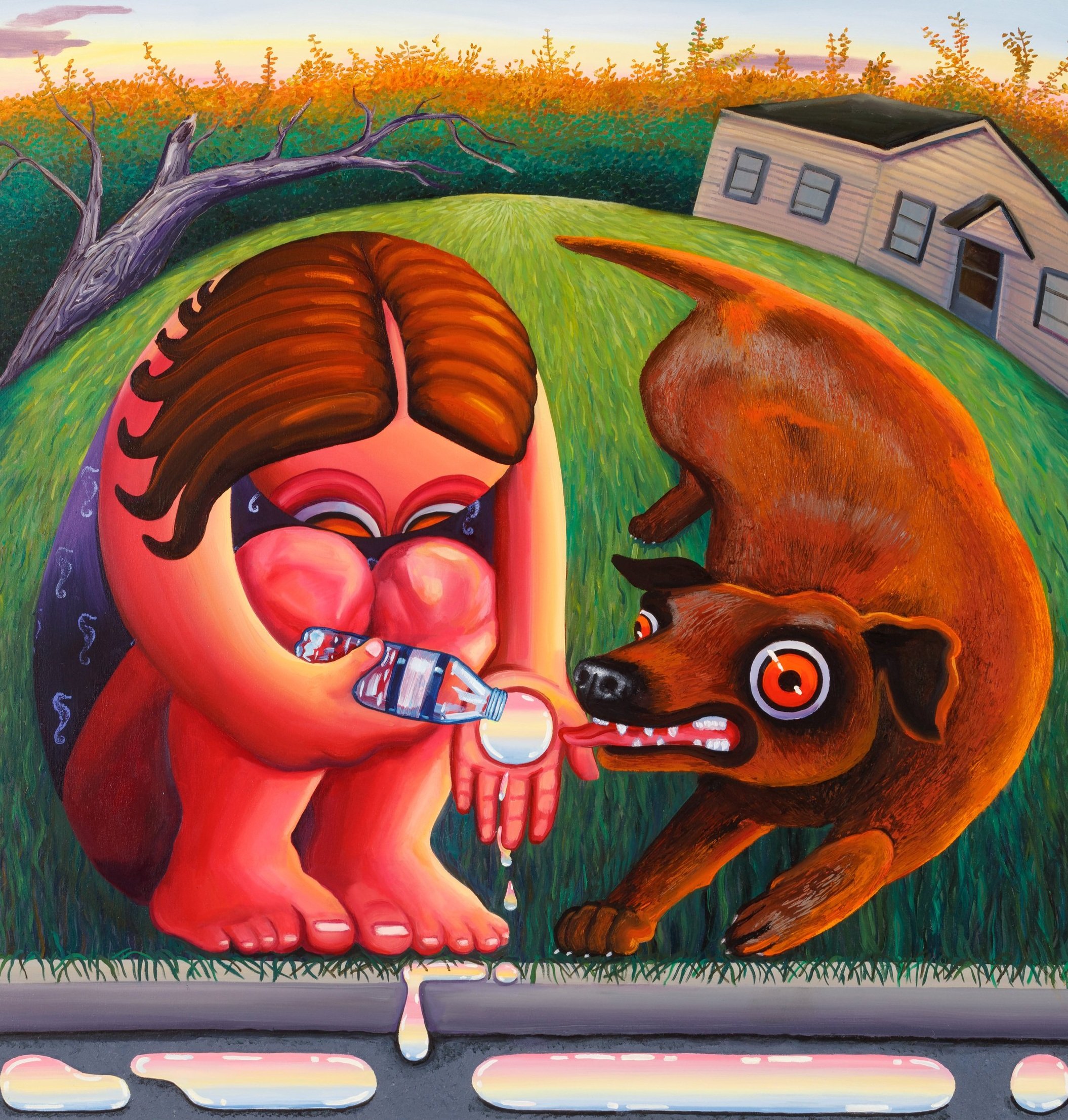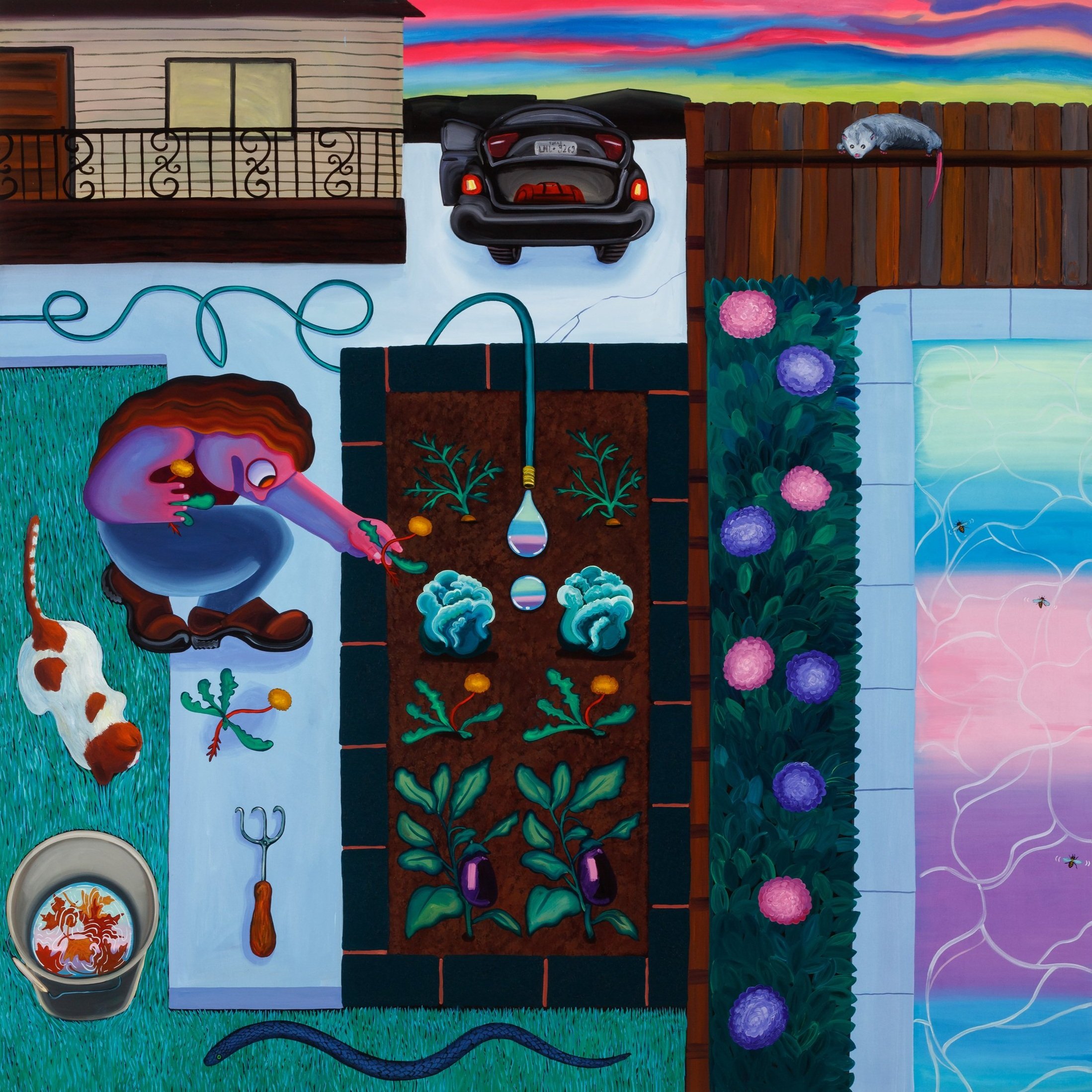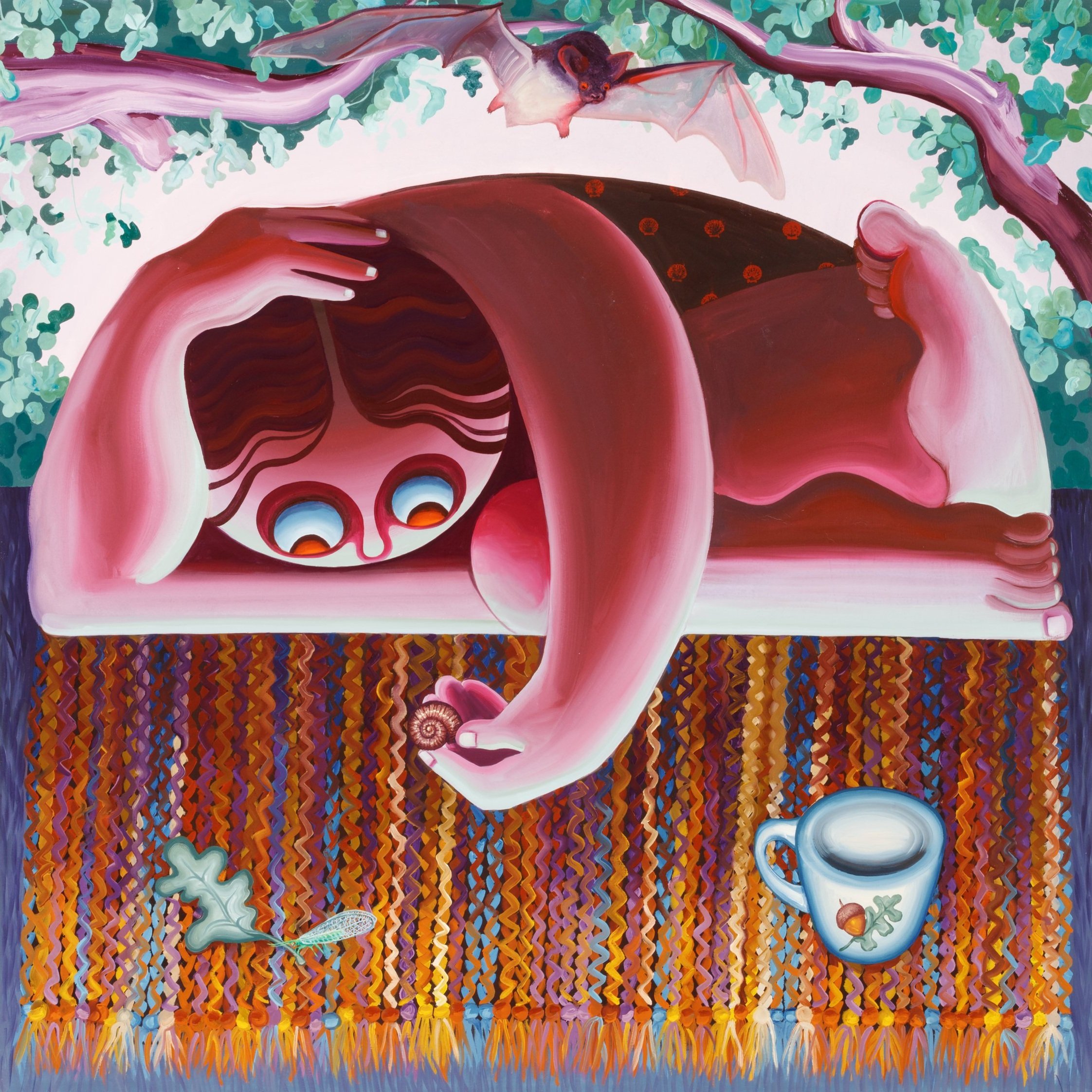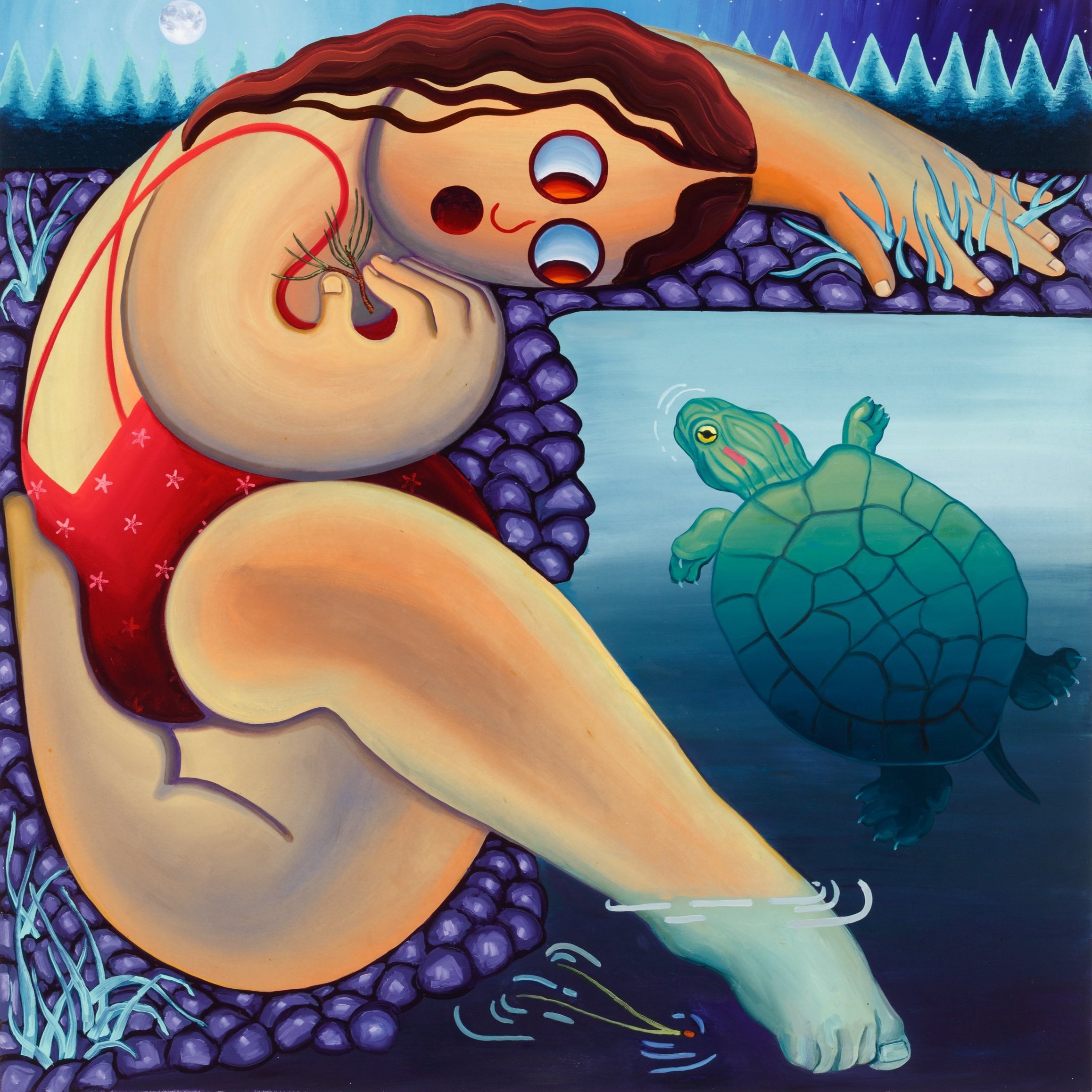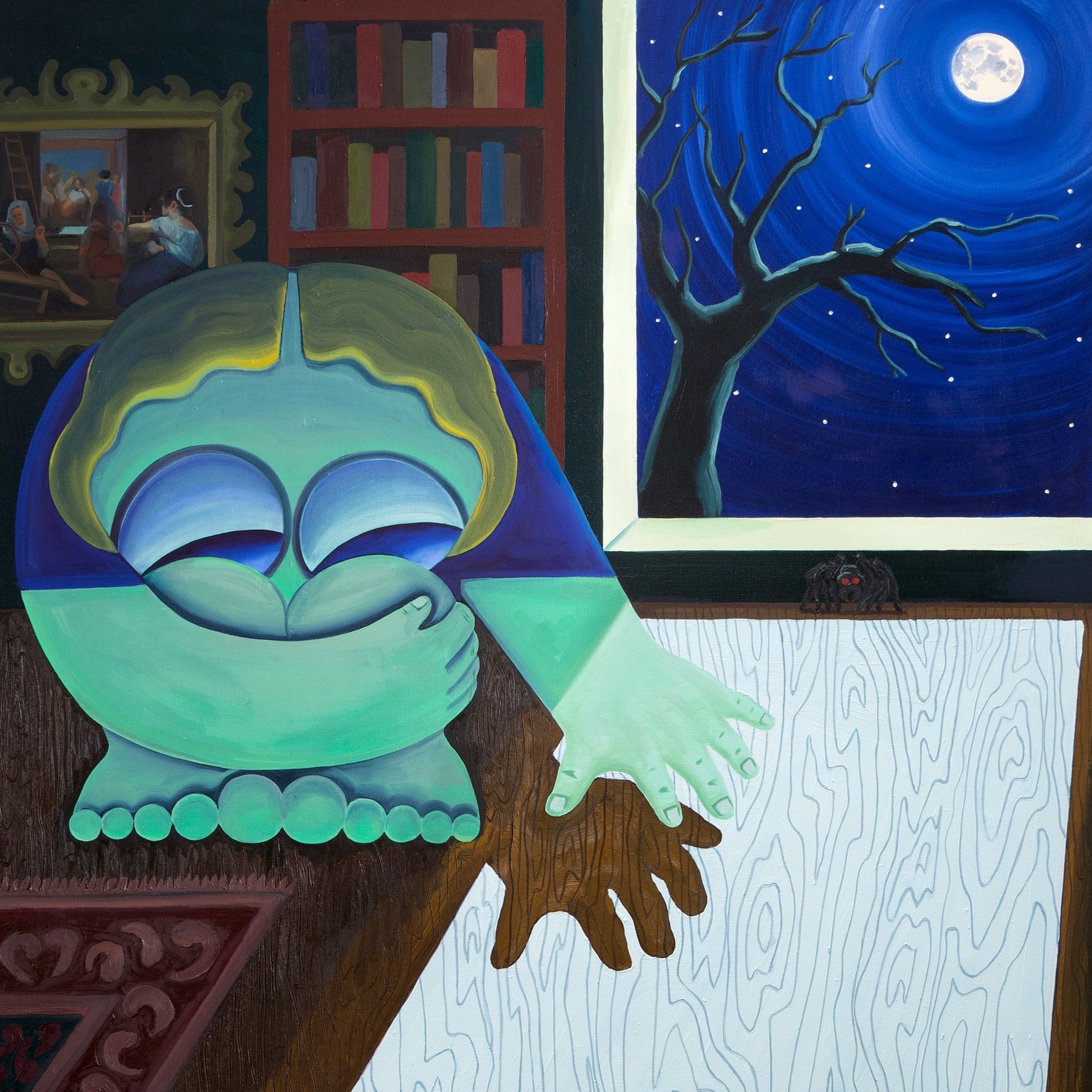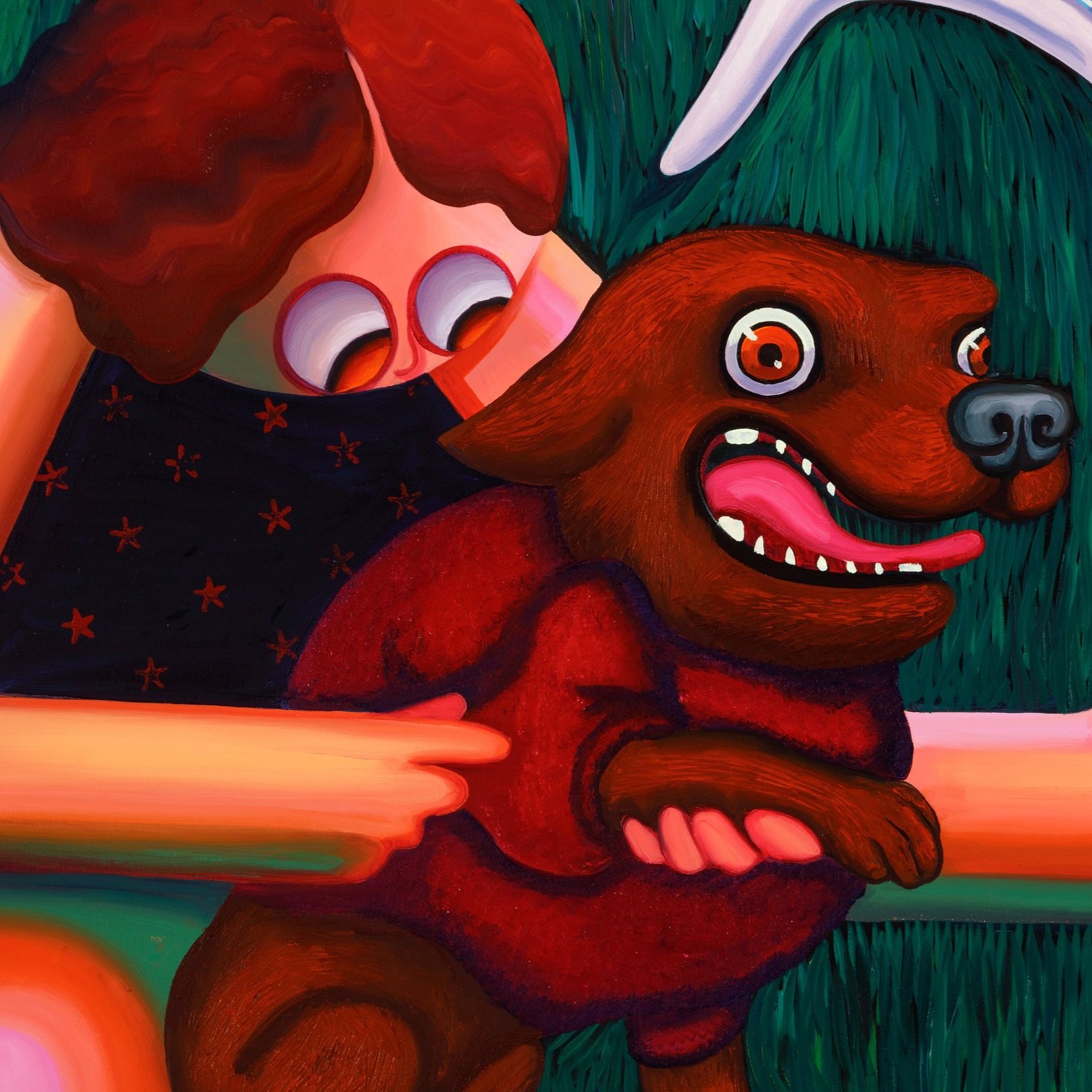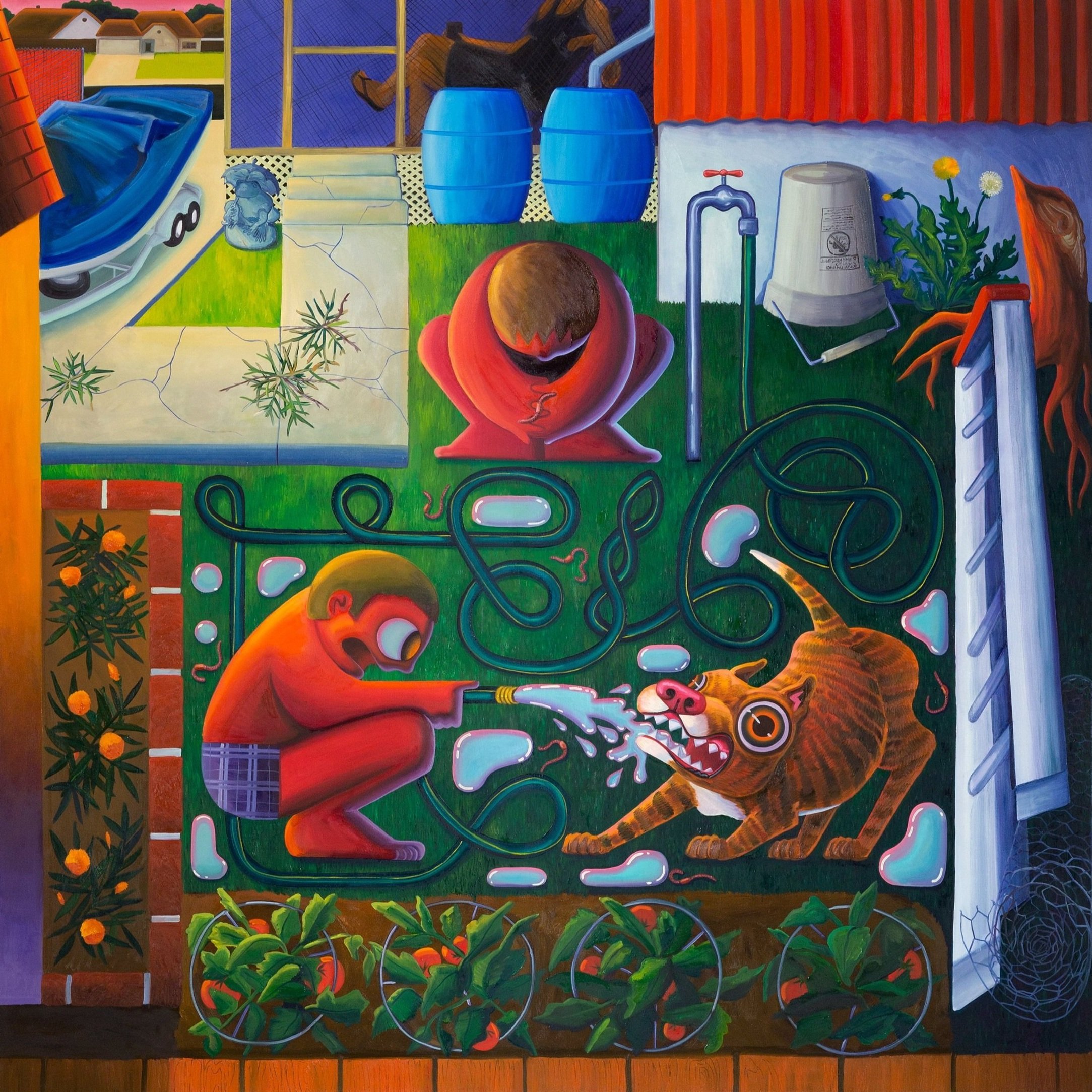Artists
Natalie Wadlington
Originally from Modesto, California, Natalie Wadlington received her BFA from California State University, Stanislaus (2017), and her MFA in painting from Cranbrook Academy of Art in Bloomfield, Michigan in May of 2020. Wadlington’s practice centers around creating richly-colored paintings that are based in story-telling and figuration. Her characters are wide-eyed with wonderment and fear as they navigate various environments and encounters with both wild and domesticated animals. Wadlington views the interactions presented within her works as metaphors that communicate larger archetypal narratives of love, conflict, and misjudgment, specifically in our relationship to animals. In her paintings, characters come together in symbolic scenes that mirror our own complex struggles for mutual understanding.
Wadlington communicates the complexity of anthropomorphism, where our tendency to project human thoughts and feelings onto other species can be both beneficial in inspiring empathy in us to care for pets or support environmental causes; as well as detrimental in perpetuating a lack of knowledge about their unique social habits and needs. When it comes to human behavior and our treatment of both animals and one another, we are simultaneously the most compassionate and cruelest species, the most loving and the most destructive. Through their nuanced interplay, Wadlington depicts our longing for connection. Her figures observe, disrupt, contemplate, question and invade the lives of the animals they meet, presenting varying approaches to our own interpersonal actions and reactions regarding the people in our lives. Within the works, the argument is made for mutualism, where we realize that interdependence is necessary for the well-being of both humans and animals on the planet we inhabit together.
Through collaging different painting styles within a frame that tightly surrounds her subjects, Wadlington places equal but varying importance on both figure and animal. As she explains, “Hierarchies in the narratives are leveled so that the actors in the scenes are simultaneously storyteller, protagonist, and antagonist. Through the stories’ multiple reads and interpretations, moral agency can be granted or taken away from both human and animal.”
B. 1992 in Modesto, California; lives and works in East Texas.

